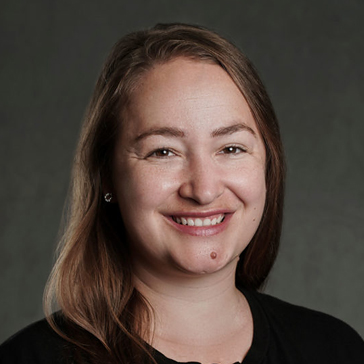United Charter High Schools is a small but growing charter network in New York City serving over 2,300 high school students across seven schools. We are grounded in values of equity, innovation and student-centered learning. When we joined the AI x Coherence Academy in fall 2024, we weren’t starting from scratch with AI: several teachers were already experimenting with AI tools and one high school had joined a national, school-based collaborative.
However, as a growing network, we wanted to do more than explore. We needed to align, clarify and act across our system. The Academy gave us a structure to do just that with tools, routines and a coach to help us build coherence across teams and roles, across our central office and schools.
To start, this work was not led by one person or one team: it was collaborative from the start, by design. Our cross-functional group included:
This shared ownership helped us move quickly without losing intentionality. And it made sure that what we built reflected the needs and strengths of our whole community.
Once we had our team together, the AI x Coherence Academy helped us shift focus from “what tools are out there?” to “what problems do we want to solve?” That mindset shift helped ground our exploration.
We identified two high-priority instructional challenges that were already surfacing across schools:
By defining these as our core use cases, we were able to focus on experimentation and evaluate tools more meaningfully. Our cross-functional team used these use cases to test tools in classrooms, facilitated by our Network Inquiry Team, and share feedback.
We knew that experimentation was only part of the work. Teachers had questions, principals wanted answers and our board was asking for guardrails. We decided to move toward a network-wide policy and playbook that could balance innovation with clarity and flexibility.
With support from our Academy coach, we designed a staff survey to better understand how AI was already being used, what educators needed and what concerns they had. The results helped shape our policy priorities as we learned:
We paired this data with live demos, tool tests and principal, teacher and student input. We then wrote a draft policy that was grounded in educator and student voice and instructional priorities. In July 2025, our board formally approved the policy.
Our policy focuses on supporting teachers, staff and students to use AI where it adds the greatest value, and that aligns with how we approached our tool adoption decisions, too. Using the AI x Coherence Due Diligence Checklist, we evaluated multiple options and ultimately adopted Brisk Teaching to support feedback on student writing. The decision was driven by classroom use and teacher feedback, alongside budget considerations.
To support implementation, we reorganized our Playbook to center use cases (not tools) and offered concrete guidance aligned to our new policy. We also set up internal routines to ensure cross-role collaboration on our AI integration strategy continued beyond the Academy.
If you’re a leader thinking about how to move from AI curiosity to coherence, here are a few questions to guide your next steps based on our experience with the AI x Coherence Academy:
As we begin the 2025–26 school year, we’re entering with:
We’re proud of how far we’ve come, and we’re still learning. Coherence doesn’t mean perfection. It means clarity, focus and a shared direction.
As an AI x Coherence Academy coach, one of the most powerful parts of this journey was how United actively integrated voices from across their network. This was evident when I joined AI product demo calls with 12 United teachers, all of whom would then provide feedback on the tools via the district’s NIT.
The Academy provided a framework and tools to approach and evaluate AI opportunities, but United did the work connecting experimentation to actionable strategy. This hands-on, “inside-out” approach fostered deeper ownership and a strong sense of coherence within their district, creating a foundation they’re already building on this school year.
United Charter, along with the other 10 districts we partnered with as part of the Academy, aren’t done learning, and we know others aren’t either. That’s why we’re sharing United’s story as part of the AI x Coherence learning series, including an upcoming webinar on September 29. These are real-time reflections from districts doing the hard, important work of aligning AI to what matters most.
At Education First, we are about education, first. And when it comes to AI, that stays true. Our focus is first on education, then how can AI support those goals. If your district is exploring AI solutions in service of teaching and learning, we’d love to invite you to the second year of the AI x Coherence Academy—sign up here to learn more.


